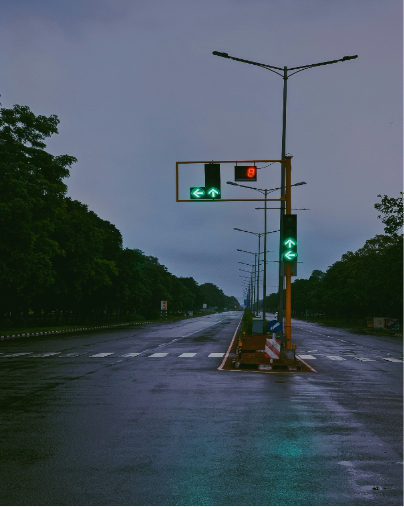Bangladesh has taken a significant step to improve its transport system. On May 8, the government launched a plan to streamline transport projects across the country. The focus is on speeding up roads, signals, and public transport initiatives—especially in Dhaka—to ease traffic jams and support economic growth. The plan begins by tackling a key issue: delays. Currently, it can take up to 13–14 months from project approval to awarding a contract. To fix this, two teams have been formed. One meets every other week to coordinate between agencies, and the other reviews project costs with a “second eye” before approval. Another important change: no project will go to tender until land is fully acquired and utilities like water and electricity are moved. This change alone could significantly reduce delays. By improving coordination between the Dhaka Metropolitan Police, city corporations, and other agencies, the government hopes to better manage congested routes like Airport to High Court, which suffer from frequent gridlock. The initiative also includes reactivating traffic signals along major corridors and drafting policies for battery-operated rickshaws and auto-rickshaws. Student-led patrols will monitor illegal bus parking, reducing roadside clogging. To help all stakeholders stay informed, a new online platform will allow agencies to track ongoing transport projects in real time. This movement isn’t just about smoother commutes—it links to multiple important sectors. In construction and engineering, quicker project approvals will keep workers employed and build better infrastructure. In the logistics sector, transport businesses will benefit from reduced congestion, faster travel, and lower fuel costs. That boosts trade, retail, and manufacturing, as goods can move more efficiently from factories to markets. Agriculture benefits too. Farmers in regions like Sylhet, Mymensingh, and Chattogram rely on good roads to deliver fresh produce. Faster transport means lower spoilage, better prices, and stronger rural economies. Technology and ICT also play a role. The new monitoring website opens doors for software developers to build apps for real-time tracking of construction progress or traffic flow. This could spark innovation in the tech sector and smart city initiatives. Education and academia have a part as well. Engineering and planning students can use this reform as a live case study. Universities will be able to involve students in solving problems like route design, traffic signal logic, and project coordination. Finally, the move supports the emerging green transport movement. Traffic efficiency reduces fuel consumption and emissions. Once traffic flows better, public transport initiatives like bus lanes or BRT systems will be even more effective. In short, the government’s transport streamlining is a powerful, non-political effort to modernise Bangladesh’s backbone. By reducing delays and improving coordination, this plan benefits commuters, businesses, and communities. With so many sectors engaged—from engineering and ICT to agriculture and logistics—the future of transport in Bangladesh looks brighter and better connected.
Govt Streamlines Transport Projects to Unclog the Capital
4
previous post

